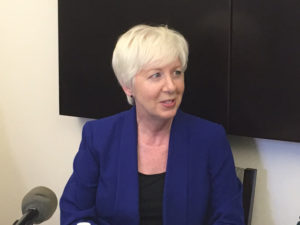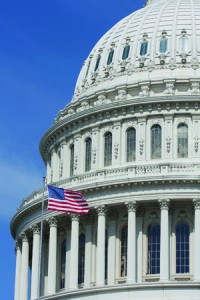By Steve Brawner
© 2017 by Steve Brawner Communications, Inc.
History repeats itself, and, as we’re seeing with health care, that includes recent history.
In 1993, newly elected President Bill Clinton put the first lady in charge of fixing health care, and the next year the Republicans took over the House and Senate and gained 10 governorships. In 2009-10, newly elected President Obama and the Democrats passed the Affordable Care Act, and then Republicans gained control of government in Arkansas and virtually everywhere else except cities and the big blue states.
Now, newly elected President Trump and Republicans in Congress are trying to pass a health care bill – without any support from Democrats, who are salivating at the prospect of that issue sinking Republicans the way it previously sank them.
The latest Senate effort to repeal and replace Obamacare is called the Better Care Reconciliation Act, but you’d better believe that Democrats are calling it Trumpcare. That effort got some bad news Monday when the Congressional Budget Office said its passage would lead to an increase of 22 million uninsured Americans by 2026. That’s about the same as the American Health Care Act earlier passed by the House – the one that only 16 percent of Americans called a good idea in a recent NBC News/Wall Street Journal poll.
Because Democrats are an automatic no, the Senate version cannot survive if more than two Republicans vote against it. Things can change quickly in politics, but as of this writing more than two are expressing serious misgivings. Even Arkansas’ Sen. Tom Cotton, one of 13 senators who helped draft the bill in secret, hasn’t said if he’s definitely for it, and neither has Sen. John Boozman, though it’s hard to see either bucking the party in the end. If it does pass the Senate, it still has to be reconciled with the House version.
Just looking at the politics, you might wonder why elected officials don’t just ignore the issue. Unfortunately, health care is too big to do that. It’s 18 percent of the economy and growing faster than inflation. Premiums are rising, and insurers are pulling out of markets. Costs have risen so much for so long that policymakers vaguely pledge to “bend the cost curve” because it’s too much of a reach to say “spend less.”
In other words, health care is so big that elected officials must at least pretend to try to solve it, and when they do, they’re probably going to get punished for it. That’s because they cannot provide what voters expect – unlimited care for everyone with no bad outcomes at a negligible price and with no effort on our parts beyond taking a pill, which had better go down easy. Americans expect health care to be cheap if not free, but they don’t want the government to run it, and they don’t particularly like the insurance companies, either. You know the old saying, “Everybody wants to go to heaven, but nobody wants to die”? It’s just as accurate to say, “Everybody wants great health care, but nobody wants to pay for it.”
Meanwhile, the problem of exploding costs could be lessened if Americans simply made healthier choices. A recent Arkansas Center for Health Improvement study of 69,000 state and school employees found insurance plans spent far less in 2015 when employees were not obese or exercised regularly. In fact, the plans spent almost twice as much for employees who said they exercised fewer than 20 minutes per week – $6,043 each – as those who exercised moderately three times a week or vigorously once a week. Those employees cost their health plans only $3,345.
Health care won’t be “fixed” by any bill hatched in secret at the U.S. Capitol – not by Republicans, and not by Democrats. But one potential bright spot in the House and Senate bills is that they offer more flexibility to the states, which offer 50 laboratories to experiment with partial solutions. One such experiment, begun in 2013 and now called Arkansas Works, uses taxpayer dollars to buy insurance for poor people rather than enrolling them in a government program. It insures 300,000 people – more than were expected, so now Governor Asa Hutchinson is seeking to modify the program by adding a work requirement and lowering the income eligibility threshold.
Experiments like Arkansas Works should be encouraged. Good or bad, someday they will be the history others can learn from.

